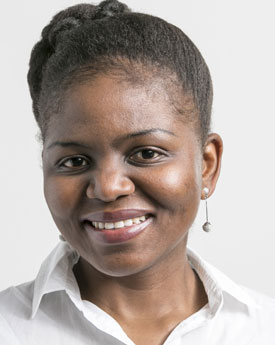

 Nonhlanhla Dube, Luk van Wassenhove, and Taco van der Vaart explain why the next time you make a donation, you should consider doing it for victims of conflict everywhere, and trust the humanitarian organisations to make best decisions to help the most people.
Nonhlanhla Dube, Luk van Wassenhove, and Taco van der Vaart explain why the next time you make a donation, you should consider doing it for victims of conflict everywhere, and trust the humanitarian organisations to make best decisions to help the most people.
The emotions of the public are rightly high as Ukraine endures the biggest military attack in Europe since the Second World War. People are looking for ways to show their solidarity to the people of Ukraine as they face a major humanitarian crisis. We have already heard that donating cash is far better than donating goods. But, how we donate cash can also have negative implications for victims of war.
‘Earmarking’ donations – deciding on what, whom, and/or where money should be spent – can have negative consequences. Feeling a need for such a ‘say’ over where our funds go is quite unique to the humanitarian sector. We do not decide how the Amazons and Teslas of this world spend our investments, but still expect good returns. And research tells us that making these decisions on behalf of humanitarian organisations can lead to worse overall humanitarian outcomes.
Several major humanitarian organisations have repeatedly made pleas for unearmarked funding to better serve millions of civilians who are increasingly stripped of hope and dignity in various conflicts across the globe. But they have had mixed success. UNHCR, for example, still typically gets more than 80% earmarked donations despite its consistent appeals for flexible funding. Doctors Without Borders, for most of the part, has successfully avoided funding appeals for specific crises, but this takes a lot of work and depends on where most of the donations come from. They have generally maintained this stance for Ukraine in the hope the outpouring of support for the crisis will trickle down to victims of forgotten conflicts – Afghanistan, Chad, Democratic Republic of Congo, Ethiopia/ Tigray war, Iraq, Israel-Gaza, Mali, Mozambique, Myanmar, Somalia, South Sudan, Syria, Yemen, to name but a few.
Humanitarian organisations exist to alleviate untold suffering wherever it may exist. All lives being equal in principle, and all situations being time-critical, they must be extremely effective in matching supply (donations) and demand (all humanitarian needs). As demand often outstrips supply, humanitarian organisations must efficiently plan, implement, and control the flow and storage of the right supplies; into the right places; in the right quantities; at the right time. If they get any of the above wrong, people die.
Earmarked funding leads to a structural mismatch, compromising efficiency and all of the above. There are many reasons donations shouldn’t be earmarked – here are just four:
- Wrong supplies, wrong quantity. Even if donations are received in good time, dictating what to spend donations on can lead to failure to match demand. When donating, most of us may think of obvious things like food and clothing – which can lead to oversupply of these goods and undersupply of others like medicines for terminal or rare diseases. Differences in culture and climate across places impacted by conflict worsen this mismatch. When there is oversupply of funds for specific goods, humanitarian organisations must go through the administrative headache of contacting individual donors to seek permission to divert their donations for other purposes. Often, donors would rather get their money back. Meanwhile, the needs of civilians are not met in a holistic way. The terminally ill may get fed, but their lives are still in danger without medicines.
- Wrong place – Supplies can fail to reach the right place for two main reasons. First, if donors also choose where their money is spent by specifying the geographic boundaries, any oversupply of specific goods or cash cannot simply be diverted to other places where they are needed. A couple of years ago, UNHCR expressed how earmarked funding stifled their operations for the Syria conflict. They couldn’t extend their activities into Jordan and Lebanon – where needs were also high – until they received flexible funding. In terms of Ukraine, government contributions from the EU, UK, and US alone so far eclipse the funding appeals from major organisations. The public outpouring of support also adds significantly to these burgeoning funds. The Disasters Emergency Committee UK raised over £200 million in two weeks (compared to £30 million in one month for Afghanistan) with millions more being raised across Europe everyday through multiple individual and organisational initiatives.
Second, if a donor only wants to cover the costs of specific goods, someone else must cover the often-prohibitive logistics costs for delivery. Our analysis of publicly available annual financial statements of one of the most logistically efficient organisations shows that, in conflicts where insecurity is high, logistics-related costs can be up to eight times higher than the costs of providing direct assistance and can make up to 40% of the overall programme budget. In the worst case, without unearmarked funding to cover these necessary costs, it would be difficult to deliver supplies from earmarked donations where they are needed.
- Wrong time. Some crises are more important to the public than others. So, they receive disproportionally more donations. Because of earmarking, if they become overfunded, this can create more problems than it solves for the millions of civilians caught up in forgotten conflicts. From its $6 billion appeal to tackle widespread hunger in East Africa, the UN has so far only raised 3%. While, overall, there is more money than needed for humanitarian relief in Ukraine (which is different from money needed for rebuilding – and humanitarian donations cannot just be diverted for that cause when the time comes), the window for minimising the impact of the food crisis in East Africa is closing fast. This is a devastating state of affairs for the humanitarian organisations whose hands are tied by earmarking and for the civilians whose hands are held out but mere drops of assistance come through – if at all.
- What else could go wrong? A unique feature of the crisis in Ukraine is it is having a direct impact on forgotten conflicts. Recently, Oxfam expressed concern that some governments are contemplating reallocating earmarked funds for other humanitarian hotspots to the Ukraine crisis. The war has also caused price hikes on food and fuel, making it even more difficult for major organisations like the World Food Programme to cope with global demand. Several countries also heavily rely on Ukraine and Russia for wheat supply. Benin and Somalia top the list, with 100% coming from these two countries. Food shortages only worsen conflict and health outcomes. In turn, failure to act on time increases the scale and scope of current and future humanitarian crises.
There are several other funding-related issues that need to be resolved by the humanitarian sector and its major donors – mostly governments. For example, uncoordinated relief efforts – partly because of regulation (which is not always a bad thing) and partly out of preference and context-specific limitations – also lead to inefficient use and distribution of funds.
As the public, though, there are things we can do today to help reduce problems caused by earmarked donations. The next time you raise funds or make a donation, consider doing it for victims of conflict everywhere, and trust the humanitarian organisations to make best decisions to help the most people. Also, no single organisation can cover all the needs arising in conflicts and most specialise in a few things (some focus on food supply or medical services, others on water and sanitation, etc). So, as well as resisting the instinct to say how and where donations are used, we could consider spreading a donation amongst different organisations to better meet all the needs of conflict victims.
_____________________
 Nonhlanhla Dube is Lecturer in Operations Management at the University of Lancaster.
Nonhlanhla Dube is Lecturer in Operations Management at the University of Lancaster.
 Luk van Wassenhove is Emeritus Professor of Technology and Operations Management at INSEAD.
Luk van Wassenhove is Emeritus Professor of Technology and Operations Management at INSEAD.
 Taco van der Vaart is Professor in the Faculty of Economics and Business at the University of Groningen.
Taco van der Vaart is Professor in the Faculty of Economics and Business at the University of Groningen.
Photo by CHUTTERSNAP on Unsplash






